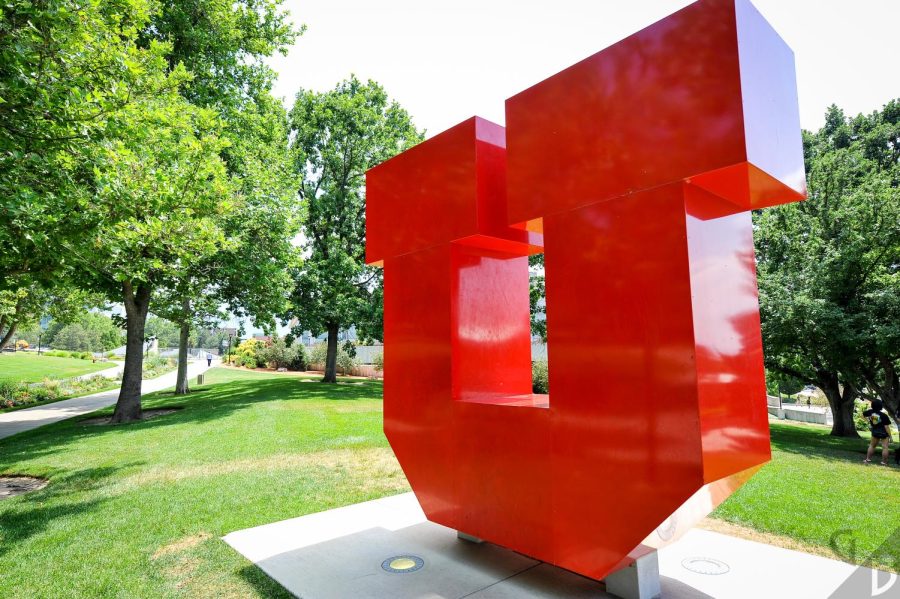President Donald Trump’s attempted immigration ban targeting Muslims has rightly evoked widespread counter-responses. Add to this outcry the voices of many students, faculty and administrators at Utah’s institutions of higher learning http://bit.ly/2kDCOtV. Religious and ethnic discrimination deserve no place on campus, and undermine the educational and research missions of Utah’s universities and colleges.
The University of Utah’s strong and appropriate stance on inclusion isn’t just a singular response to this one event. Instead, it arises from the U’s long-standing commitment to equality and diversity, religious and otherwise.
Yet it’s worthwhile to consider what such a commitment should—and shouldn’t—mean.
The U’s Dr. Charles James Nabors “Patient Voice” series admirably solicits input from diverse patient groups regarding how to improve health care http://bit.ly/2kF3wCX. A recent World Religions panel included representatives from four Abrahamic religions (Judaism, Christianity, Islam, and Mormonism), plus one atheist: Me.
Unsurprisingly, my atheist views weren’t well received by everyone. But simply labelling them as offensive is an empty defense.
Because here’s the deal: People have the right to voice their views, religious or otherwise. But they have no right for their views to go unchallenged. Religious nonsense is still nonsense; religious bigotry is still bigotry. It’s appropriate to say so, even if saying so offends.
It takes a twisted logic indeed to complain that rejecting bigotry is being bigoted. As Ayaan Hirsi Ali, a critic of Islam and a target of Muslim extremists, states: “Tolerance of intolerance is cowardice.” http://bit.ly/2kgF49i
The reality is, medicine and religion are often mutually exclusive. So, too, are modern medical ethics and many religious teachings. And it’s appropriate to say that, too. Unabashedly. And unapologetically.
Like this:
>> Science works. Religion doesn’t. It’s that simple. The very existence of clinical trials acknowledges the failure of prayer. Smallpox killed 300-500 million people in the 20th century alone, and untold millions more since the emergence of the Abrahamic faiths http://bit.ly/1OgWXcE. It was science and medicine that eradicated smallpox, not religion.
>> Religion is quackery. If you claim that putting a picture of Oprah Winfrey on a patient’s abdomen and invoking her name can cure cancer, then you’re a quack—and correctly dismissed as such. But if you claim the same thing for a picture of Mother Teresa, then you’re the Pope, and widely acclaimed. It’s time to stop the double standard.
>> Magical thinking is not only wrong, it’s harmful. Children suffer and die in the United States because their parents treat them with the power of God rather than medicine http://bit.ly/2aGhpXG. But it’s not just the parents. Anyone who in any way, at any time, promotes the potential power of prayer to heal—as all Abrahamic religions do—shares in the blame.
>> Worse still, religion is granted special exemptions for practices that are medically contraindicated. In some Abrahamic sects, eating bacon is an abomination, but orally sucking the blood from a just-circumscribed penis is a holy ritual—“because God says so.” This ritual transmits the herpes virus, killing newborns. Yet it’s allowed, even in the United States http://nyti.ms/2jgKulO.
>> Medical ethics rightly requires that patients retain body autonomy. One can’t harvest the organs from a corpse without permission, even to save another person’s life. So when religion interferes with a women’s medical right to abortion, it deprives her of rights that medical practice usually doesn’t deny even to the dead.
>> Health equity and inclusion require that all people be treated equally, regardless of nationality or religion. But that’s not what religion always preaches. Even the purportedly benevolent Christ insulted a foreign mother and refused to treat her child until she professed her faith (Matthew 15). That’s inappropriate. Just imagine the (justifiable) outcry if, say, an atheist doctor comparably withheld treatment from a Christian, Jewish, or Muslim child till her mother denied God.
In short: People deserve equal treatment. But ideas aren’t people.
Well-intentioned persons who promote inclusiveness, diversity, and tolerance routinely err by claiming that all ideas deserve “respect.” That’s wrong. Ridiculous and repugnant ideas don’t deserve respect—they deserve rejection. Religious ideas included.
As Salman Rushdie, author of The Satanic Verses and target of an Islamic death fatwa, has written: “The moment you declare a set of ideas to be immune from criticism, satire, derision or contempt, freedom of thought becomes impossible.” http://lat.ms/1GAXM15
Yet it’s a different situation altogether when it comes to treating patients.
Within very broad limits, when it comes to health care, then patients’ preferences should prevail, including their religious beliefs. It’s not appropriate to exploit vulnerable people to preach your faith—or lack of it.
Unfortunately, that’s not always the case. Particularly in the mental health professions, atheists are too often encouraged by practitioners to find solutions in God or religion, which may be the very source of their problems.
That’s like telling an alcoholic to seek solace in whiskey. It’s not only counterproductive; it’s a violation of ethics.
Patients come for treatment, not proselytizing. And that’s what they deserve to receive—theists and atheists alike.
Now that’s an idea we should all respect.
Gregory A. Clark is an associate professor of Bioengineering at the University of Utah. The views expressed are his own.











